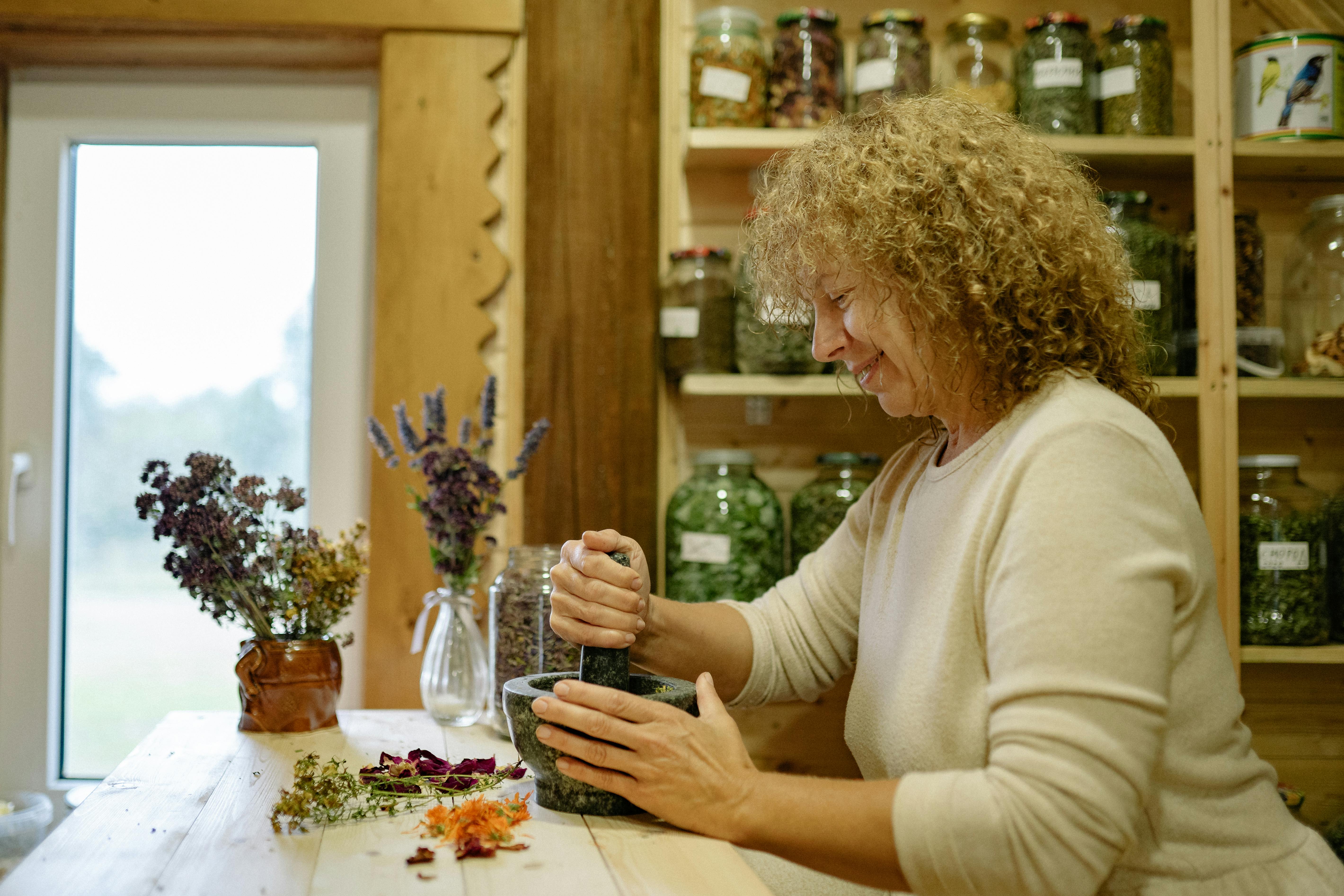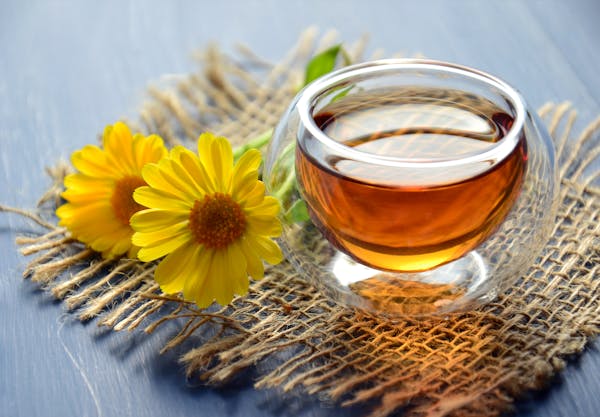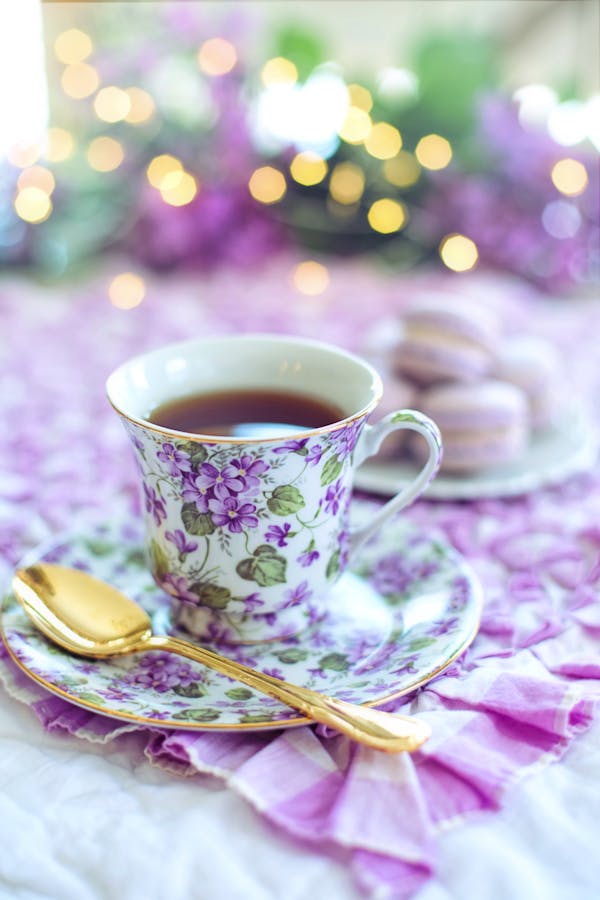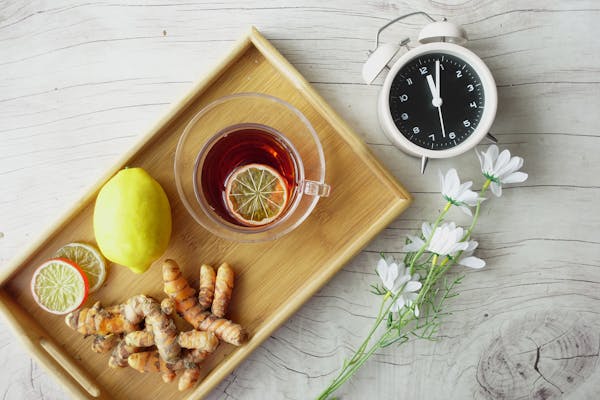Herbal Teas for Better Sleep Naturally: 5 Options

In our relentless, 24/7 world, a truly restful night’s sleep often feels like a distant dream. Consequently, many of us find ourselves staring at the ceiling, mind racing, as precious sleep hours slip away. The consequences are clear: groggy mornings, reduced productivity, irritability, and even long-term health concerns. While quick fixes might seem tempting, natural remedies like soothing herbal teas for better sleep naturally can offer a gentle yet effective path to better rest. At Health Essentials, we’re committed to helping you achieve wellness through nature’s gifts. Visit our homepage for more solutions to enhance your health.
Affiliate Disclosure: This post contains affiliate links from Amazon Associates and ClickBank. As an Amazon Associate, I earn from qualifying purchases, and I may also earn commissions from ClickBank products at no extra cost to you. See our Affiliate Disclosure for more details.
Why Use Herbal Teas for Better Sleep?
Herbal teas for better sleep naturally offer a calming ritual that, as a result, signals your body to wind down. Unlike sleeping pills, these teas are free from harsh chemicals and side effects, therefore making them a safe choice for improving rest. They often contain herbs with natural sedative properties that promote relaxation and reduce insomnia, thus helping you achieve deeper, more restorative sleep.
5 Herbal Teas to Help You Sleep Naturally
Herbal teas have been cherished for centuries across various cultures for their delightful aromas and flavors. Additionally, they are valued for their therapeutic properties, especially their ability to calm the mind and prepare the body for slumber. If you want to improve sleep quality, fall asleep faster, and wake up refreshed, try a warm cup of herbal tea before bed.
1. Chamomile Tea

When you think of teas for relaxation and sleep, chamomile often springs to mind first, and for good reason, because it’s highly effective. This daisy-like flower has a long-standing reputation as a mild tranquilizer and sleep aid.
Why it Works for Sleep:
An antioxidant called apigenin largely causes chamomile’s calming effects. This compound likely binds to specific benzodiazepine receptors in your brain, which can decrease anxiety and initiate sleep.
- 🌿Reduces Anxiety & Stress: Chamomile actively reduces anxiety, helping to quiet a racing mind that might keep you awake.
- 🌿Promotes Relaxation: It generally calms the nervous system, thus easing tension and making it easier to unwind.
- 🌿Gentle Sedative: Although not as potent as prescription sleep aids, its mild sedative qualities can help you drift off more easily.
How to Use It:
Brew a cup of chamomile tea about 30-60 minutes before your intended bedtime. Use one to two tea bags, or one to two tablespoons of dried chamomile flowers, per cup of hot (not boiling) water. Steep for 5-10 minutes, covered, to retain the volatile oils. I recommend trying this chamomile tea for a high-quality option (As an Amazon Associate, I earn from qualifying purchases).
Pro-Tip: Opt for high-quality, organic chamomile, either loose-leaf or from reputable tea brands, for the best flavor and potency. Additionally, make sipping your chamomile tea part of a relaxing pre-bedtime ritual.
2. Lavender Tea

The enchanting aroma of lavender promotes calm and relaxation. While lavender essential oil is popular for aromatherapy, lavender flower tea offers a direct way to ingest its soothing compounds.
Why it Works for Sleep:
Lavender contains active compounds like linalool and linalyl acetate, which researchers think interact with neurotransmitters like GABA to help calm the brain and nervous system.
- 🌿Soothes the Nervous System: Lavender tea reduces restlessness and agitation, promoting a sense of peace.
- 🌿Alleviates Anxiety: Studies show lavender significantly reduces anxiety, a common sleep barrier.
- 🌿May Improve Sleep Quality: Some research suggests that lavender increases slow-wave (deep) sleep, which is crucial for feeling restored.
How to Use It:
Use about 1-2 teaspoons of dried lavender buds per cup of hot water. Steep for 5-10 minutes. Since lavender has a potent flavor, you might want to start with a shorter steep time or a smaller amount of buds until you find your preferred strength. It also blends well with other calming herbs like chamomile or lemon balm. I recommend this lavender tea for a soothing experience (As an Amazon Associate, I earn from qualifying purchases).
Pro-Tip: Ensure you use culinary lavender (Lavandula angustifolia) for tea. Meanwhile, you can diffuse lavender essential oil in your bedroom to enhance the calming atmosphere while enjoying your tea.
3. Valerian Root Tea

Valerian root ranks among the most well-studied herbal remedies for insomnia and sleep disturbances. Its strong, earthy aroma and taste might be an acquired taste for some, but its effectiveness often makes it worth trying.
Why it Works for Sleep:
Though the exact mechanisms remain unclear, valerian root likely increases levels of GABA in the brain. GABA, an inhibitory neurotransmitter, quiets nerve activity. Valerian may also interact with serotonin and adenosine receptors, which play roles in sleep and mood regulation.
- 🌿Reduces Sleep Latency: Valerian helps you fall asleep faster.
- 🌿Improves Sleep Quality: Many users report deeper, more restful sleep with fewer nighttime awakenings.
- 🌿Potent Anxiolytic: Its anxiety-reducing effects significantly contribute to its sleep-promoting benefits.
How to Use It:
Use 1-2 teaspoons of dried valerian root per cup of hot water. Due to its potency and strong flavor, steep it for 10-15 minutes. Some prefer valerian in capsule or tincture form to avoid the taste; I recommend this valerian root tea for a convenient option (As an Amazon Associate, I earn from qualifying purchases). Take it about 30 minutes to 2 hours before bedtime.
Important Note: Valerian root is quite potent, so avoid combining it with alcohol or other sedatives. Its effects may impair your ability to drive or operate heavy machinery. It’s also best for short-term use. Consult your doctor before using valerian root, especially if you are pregnant, breastfeeding, or taking other medications, as it can interact with some drugs.
4. Lemon Balm Tea

Lemon balm (Melissa officinalis), a member of the mint family, offers a mild citrusy scent and flavor. It traditionally soothes anxiety, improves mood, and promotes restful sleep.
Why it Works for Sleep:
Lemon balm contains compounds like rosmarinic acid and various triterpenes, which likely contribute to its calming and sedative effects. It may increase GABA levels in the brain by inhibiting an enzyme (GABA transaminase) that breaks down GABA.
- 🌿Reduces Stress and Anxiety: Lemon balm effectively eases nervousness, promoting a sense of well-being and making it easier to relax before sleep.
- 🌿Combats Restlessness: It helps soothe a “tired but wired” feeling.
- 🌿Often Combined: Lemon balm often pairs with other calming herbs, like valerian or chamomile, to enhance their sleep-promoting effects.
How to Use It:
Use 1-2 teaspoons of dried lemon balm leaves (or a few fresh leaves) per cup of hot water. Steep for 5-10 minutes. Its pleasant, slightly sweet, and lemony taste makes it an enjoyable evening beverage. I recommend this lemon balm tea for a delightful option (As an Amazon Associate, I earn from qualifying purchases).
Pro-Tip: Fresh lemon balm leaves from the garden create an exceptionally vibrant tea. If stress and anxiety significantly affect your sleep, lemon balm is an excellent choice to sip throughout the evening, not just before bed.
5. Passionflower Tea

Passionflower (Passiflora incarnata), a beautiful, exotic-looking flower, provides aerial parts (leaves, stems, and flowers) for making a tea that aids relaxation and sleep, particularly when anxiety or racing thoughts disrupt sleep.
Why it Works for Sleep:
Passionflower likely works by increasing levels of GABA in the brain, similar to valerian and lemon balm. It contains several flavonoids that may contribute to its anxiolytic and sedative effects.
- 🌿Calms Mental Chatter: It’s particularly helpful if your mind won’t “shut off” at bedtime.
- 🌿Reduces Anxiety-Related Insomnia: Studies show passionflower effectively reduces anxiety and improves sleep quality, especially for those with generalized anxiety disorder.
- 🌿Mild Sedative Effect: It induces a calm state conducive to falling asleep without causing morning grogginess for most people.
How to Use It:
Use 1 teaspoon of dried passionflower per cup of hot water. Steep for about 10 minutes. Passionflower tea has a mild, grassy flavor. You can find it in sleep-promoting tea blends, such as this passionflower tea, which I recommend for its quality (As an Amazon Associate, I earn from qualifying purchases).
Pro-Tip: For chronic anxiety or significant sleep issues, passionflower may work better if used consistently for a few weeks. As with other sedative herbs, consult a healthcare professional if you have underlying conditions or take medications.
Beyond the Brew: Enhancing Your Herbal Teas for Better Sleep Naturally
While the herbs themselves are powerful, how you incorporate these teas into your routine can amplify their benefits:
- 🌿Create a Consistent Ritual: Make sipping your chosen tea a regular part of your wind-down routine about 30-60 minutes before bed.
- 🌿Mindful Sipping: Don’t just gulp it down. Instead, savor the warmth, aroma, and taste, using this time to disconnect from screens and daily stressors.
- 🌿Optimize Your Environment: Dim the lights, ensure your bedroom is cool and dark, and avoid stimulating activities while you enjoy your tea.
- 🌿Listen to Your Body: Pay attention to how different teas affect you, since what works wonders for one person might be less effective for another.
Sweet Dreams with Nature’s Help
Embracing herbal teas as a natural remedy for better sleep offers a gentle, enjoyable way to support your body’s need for rest. Chamomile, lavender, valerian root, lemon balm, and passionflower each provide unique pathways to calmness and improved sleep quality. Experiment with these soothing options to find your perfect bedtime brew. Poor sleep and stress can also disrupt hormones like cortisol, contributing to weight gain. If you’re looking to address this, consider complementing your sleep routine with a product like Sumatra SlimBellyTonic, which supports weight loss through natural ingredients (I may earn a commission from ClickBank). Above all, consistency and a relaxing pre-sleep environment are key to unlocking the full potential of these natural sleep aids.
At Health Essentials, we’re committed to helping you discover natural wellness solutions. Explore more tips on our Remedies page, or join our newsletter for weekly wellness advice delivered to your inbox.
Explore More Sleep Solutions
Want to dive deeper into natural sleep remedies? Check out our free blog at Health Essentials on Blogger for additional insights and tips to support your wellness journey.
Disclaimer:
This information is for educational purposes only and is not intended as medical advice. While herbal teas are generally safe for most adults, some can interact with medications or may not be suitable for individuals with certain health conditions, or during pregnancy or breastfeeding. Always consult your healthcare provider before regularly using herbal remedies for sleep, especially if you have persistent insomnia or underlying health concerns.
Here’s to peaceful nights and refreshed mornings, naturally!
← Back to Blog